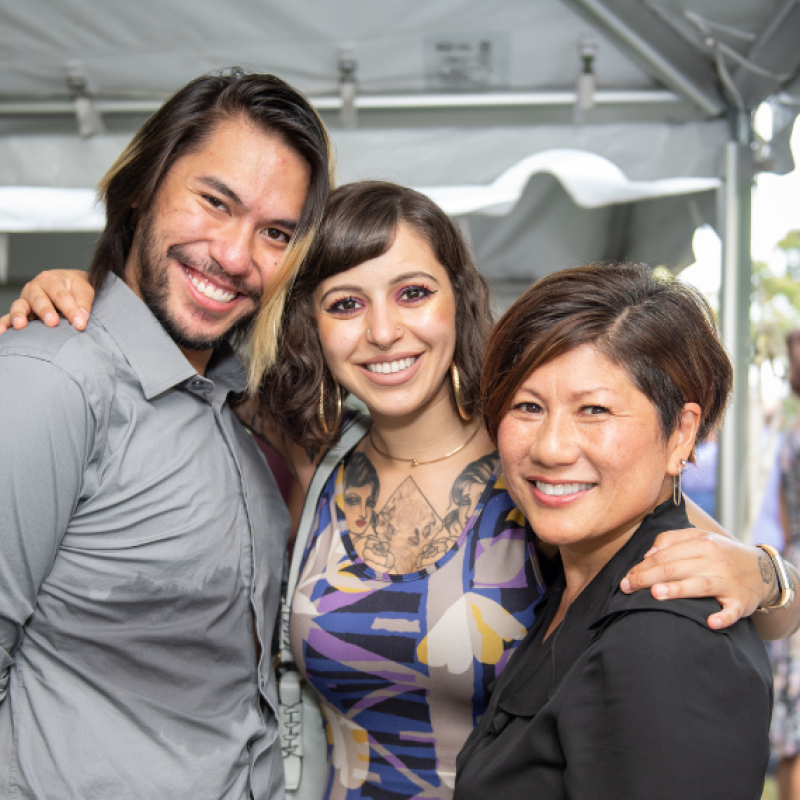My dear SSW community,
Together with the resident faculty of the Smith College School for Social Work (SSW), I write today to announce that SSW will adopt five core principles, developed by a multi-constituent group of SSW resident and adjunct faculty and students, that will guide our programs and operations going forward as we reconsider our statement of commitment to anti-racism that was first authored in 1995. Following deep and sustained reflection on our statement of commitment, we take this action to acknowledge the experiences of Black faculty and students and faculty and students of color at SSW, today and in the past, as well as our ongoing and unwavering commitment to the process of continuously opposing and dismantling racism as an institution. The deliberations of the faculty and administration about this issue were hard and emotionally charged. We found it difficult to let go of the statement of commitment, in which we are professionally and personally deeply invested, that has become part of the School’s identity. The spirit and intention of that statement remains core to SSW's identity. However, we cannot disregard the multiple communications from students, faculty and alumni asserting that continuing to frame our School in terms of that articulation of an anti-racism commitment can be experienced by Black faculty/students/alumni and other marginalized members of our community as ‘an empty promise.’
Over the past five years, we have made some changes within our School with the genuine intention of making it a welcoming learning environment for Black faculty and students and faculty and students of color. While we celebrate the outstanding work of the many members of our community—students, alumni, faculty, staff and administrators—who have made those changes possible, we also must acknowledge that the changes have been insufficient. We still need to make the types of fundamental systemic changes required to truly transform our institutional structures and practices.
Beginning in fall 2019, the faculty began a process to re-envision our 25 year-old commitment to anti-racism, reconsidering its key principles, values and assumptions in order to construct a more relevant, meaningful and enlivened commitment that can guide our policies and processes. This spring, we determined that this work would be best advanced during summer 2020 by a multi-constituent workgroup, the Anti-Racism Planning Group (ARPG)*, composed of student leaders and adjunct and resident faculty.
The ARPG has been meeting weekly since the beginning of Term 1. Through intensive examinations and discussions of anti-racism, racial justice, racial equity and decolonization frameworks, the group drafted five core guiding principles that articulate organizational values that should guide all procedures and processes of the School. The ARPG will continue their work through the fall, creating opportunities for our community to give feedback on these principles, asking what is missing and/or what should be amplified. For the present, in the absence of a statement of anti-racism commitment, the faculty have agreed that these principles will serve as working guidelines for the work of the School. These principles are:
- Prioritize intentional action over standard logistics: Prioritize purposeful action over standard “Smith SSW ways” or quick institutional responses. The goal is to bring awareness to the intention of organizational practices, center the formation of equitable practices and assess the impact of our practices, policies and actions on Black faculty/staff/students, faculty/staff/students of color, indigenous faculty/staff/students and those holding other marginalized identities.
- Ensure accountability at the individual, program and institutional levels and that there are meaningful processes for repair and reparation: In a complex organization like the SSW, we understand that there will be occasions when actions at the organizational, programmatic or individual levels may cause harm. It is essential that SSW take responsibility for creating and sustaining processes of accountability, for the impact of our policies, decisions, actions and words on the experience of Black faculty/staff/students/alumni, that of other folks of color, indigenous folks, and folks with identities that have been marginalized. In recognition of our interdependence, SSW is responsible for ensuring that there are processes for repair and reparation following harm. We are responsible for account-giving of our history.
- Center communities that have been marginalized for their strength, knowledge and beauty: SSW must draw on the knowledge, strength and beauty of Black communities, communities of color, indigenous communities and other communities that have experienced marginalization, in an authentic and central way to inform School vision and mission, policies, clinical social work curricula, practices and decision-making. By prioritizing the knowledge and experience of these communities, SSW can work toward decentering whiteness as the default.
- Ensure that Black faculty and staff and faculty and staff of color are hired and retained at all levels of power in the organization: The hiring and retention of Black faculty and staff and other faculty and staff of color at all levels of the organization is an important way to ensure that the knowledge and strengths of communities of color are centered within School mission, policies and practices and that Black students and other students of color have access to role models and professional networks with whom they share identities. It is an important way to create and support a learning environment that continually works to decenter whiteness and promote action-oriented anti-racism practices.
- Stay open to and actively engage with change: Organizational policies and practices must be reviewed continuously to ensure they are responsive to the needs of our learning community. The work of creating change is a collective responsibility and must also be taken up by those with power and privilege. Change must happen collaboratively and must center the lived realities and experiences of Black faculty/staff/students/alumni, other folks of color, indigenous folks and folks with identities that have been marginalized.
Additionally, in the coming days, weeks and months we will:
- Remove statement of commitment to anti-racism from the SSW website
- Discontinue promoting our statement of commitment in new student recruitment
- Hold an all staff training regarding the suspension of our statement of commitment and on adopting the core principles.
- Advance the work of the faculty working group to identify the top immediate priorities aligned with the five core principles for our work in meeting demands identified in the June 5 and June 20 letters.
- Begin the search for two faculty members to join the resident faculty by October 2020. (Note: The academic hiring process for social work tracks with a traditional academic year, with key time points in November and January.)
- Continue the work of the ARPG through the year, with ARPG creating opportunities in the fall for community input into the core principles
I want to thank each of you for your deep care and concern and for holding us accountable to our commitment. We have much work to do and I am so grateful to the many of you who have pushed, supported and given greatly SSW in our work toward greater anti-racism.
With hope,
Marianne R.M. Yoshioka
Dean | Elizabeth Marting Treuhaft Professor
Smith College School for Social Work
*Drawing from the report of external consultants Ann Zanzig and Jim Gray, who last summer conducted a climate assessment of SSW, the faculty began a process in fall 2019 to re-envision our commitment to anti-racism and to reconsider key principles, values, and elements that a relevant, meaningful and enlivened commitment would contain. It was our goal to recraft a commitment together with our community through summer 2020 that would direct and instruct us in our policies and processes. We knew that any new commitment must be dynamic and continuously reexamined and revised. With the onset of the pandemic, we decided that this work would be best advanced this summer by a multi-constituent workgroup, the Anti-Racism Planning Group (ARPG). The ARPG is comprised of student leaders and adjunct and resident faculty. The ARPG has been meeting weekly since the beginning of Term 1.


